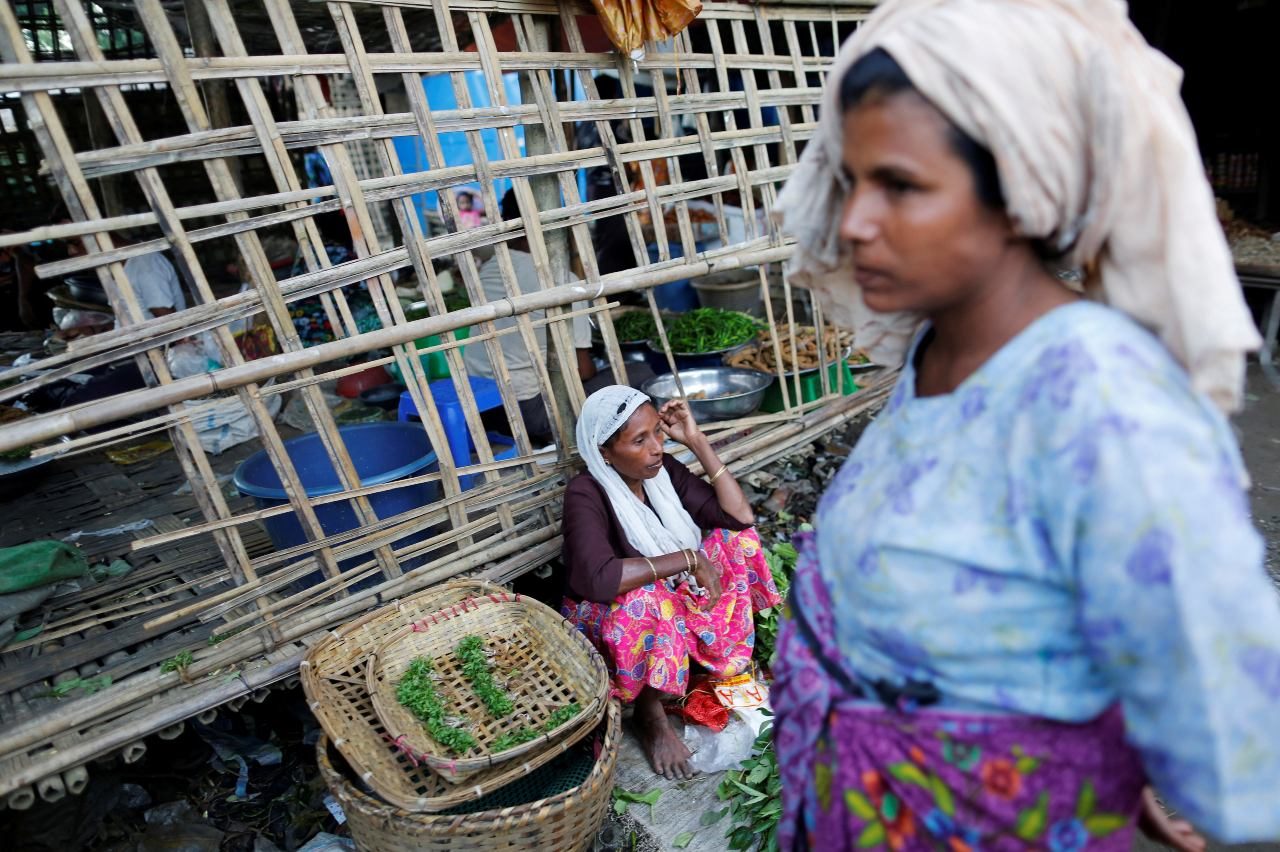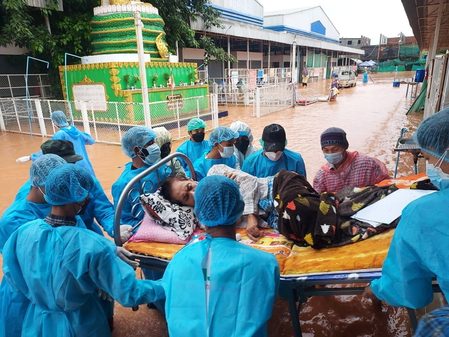SUMMARY
This is AI generated summarization, which may have errors. For context, always refer to the full article.

Authorities in Myanmar currently have no plan to include minority Rohingya Muslims living in densely-packed camps as they begin vaccinating priority groups against COVID-19 in western Rakhine State, the junta-appointed local administrator said.
Hundreds of thousands of Rohingya fled to Bangladesh during military operations in 2017 and those who remain complain of discrimination and mistreatment in a country that does not recognize them as citizens.
Local administrator Kyaw Lwin told Reuters from Sittwe township that the rollout had begun there with 10,000 vaccinations for priority groups such as the elderly, healthcare workers, government staff and Buddhist monks.
There were no current plans for vaccinating any of the Muslims living in camps in Sittwe, he said.
“We are only following orders,” he said, declining to comment on whether the plan amounted to discrimination against the Rohingya, who say they can trace local roots back centuries.
“It all depends on how many vaccines we receive and the instructions we get. So far we haven’t received any instructions regarding that,” Kyaw Lin said.
Spokespeople for Myanmar’s health ministry and the military authorities did not answer calls seeking comment on the vaccination plans.
Myanmar’s coronavirus response almost collapsed after a February 1 coup as many health workers stopped work in protest, but the army is now trying to step up vaccinations as Myanmar faces its worst spike in infections.
An average of nearly 300 people a day have died in recent days, according to official figures that medics believe are significant underestimates.
Camps affected
The densely packed shacks and muddy narrow alleys where Rohingya live behind barbed wire to separate them from the Buddhist majority in Sittwe have also been hit by the coronavirus, residents say.
From the Thet Kal Pyin camp, Nu Maung, 51, told Reuters authorities had collected names for possible vaccinations if shots become available for those who are over 60, but there was no sign of that happening.
He himself had suffered COVID symptoms, but he was unable to get to the hospital for tests, he said.
“Many people are sick. A lot. A few people died, mostly older people,” he said.
Authorities have not given figures for infections in the camps.
At two other camps near Sittwe, Phwe Yar Gone and Thet Kal Pyin, residents said the authorities had not sent anyone to prepare the ground for potential vaccinations.
Fortify Rights group human rights specialist Zaw Win said it was shocking but unsurprising that Rohingya would not be a priority for vaccination.
“Rohingya have long faced extreme restrictions on their rights and in their everyday lives, including the right to health,” he told Reuters.
“Rohingya we are speaking to in Northern Rakhine have expressed fear and distrust of the state medical system and what might happen to them if they try to go to hospital with COVID-19 symptoms.”
An estimated 140,000 displaced Rohingya live in Rakhine state. The vast majority of them are confined to camps, with those in or around Sittwe housing more than 100,000 people.
Up to half a million more Rohingya remain in villages elsewhere in Rakhine. Rohingya residents of Maungdaw and Buthidaung, north of Sittwe, said some Rohingya villagers had been vaccinated, but that supplies had now run out.
At least 700,000 Rohingya fled Rakhine for Bangladesh in 2017 during operations by the army under the command of Senior General Min Aung Hlaing, who is now prime minister and head of Myanmar’s junta.
UN investigators said the operations were carried out with “genocidal intent” but the army denied that and said they were aimed at countering terrorists.
Vaccinations started this week in the camps in Bangladesh that house more than one million Rohingya refugees. – Rappler.com
Add a comment
How does this make you feel?



![[Time Trowel] Evolution and the sneakiness of COVID](https://www.rappler.com/tachyon/2024/02/tl-evolution-covid.jpg?resize=257%2C257&crop=455px%2C0px%2C1080px%2C1080px)


There are no comments yet. Add your comment to start the conversation.